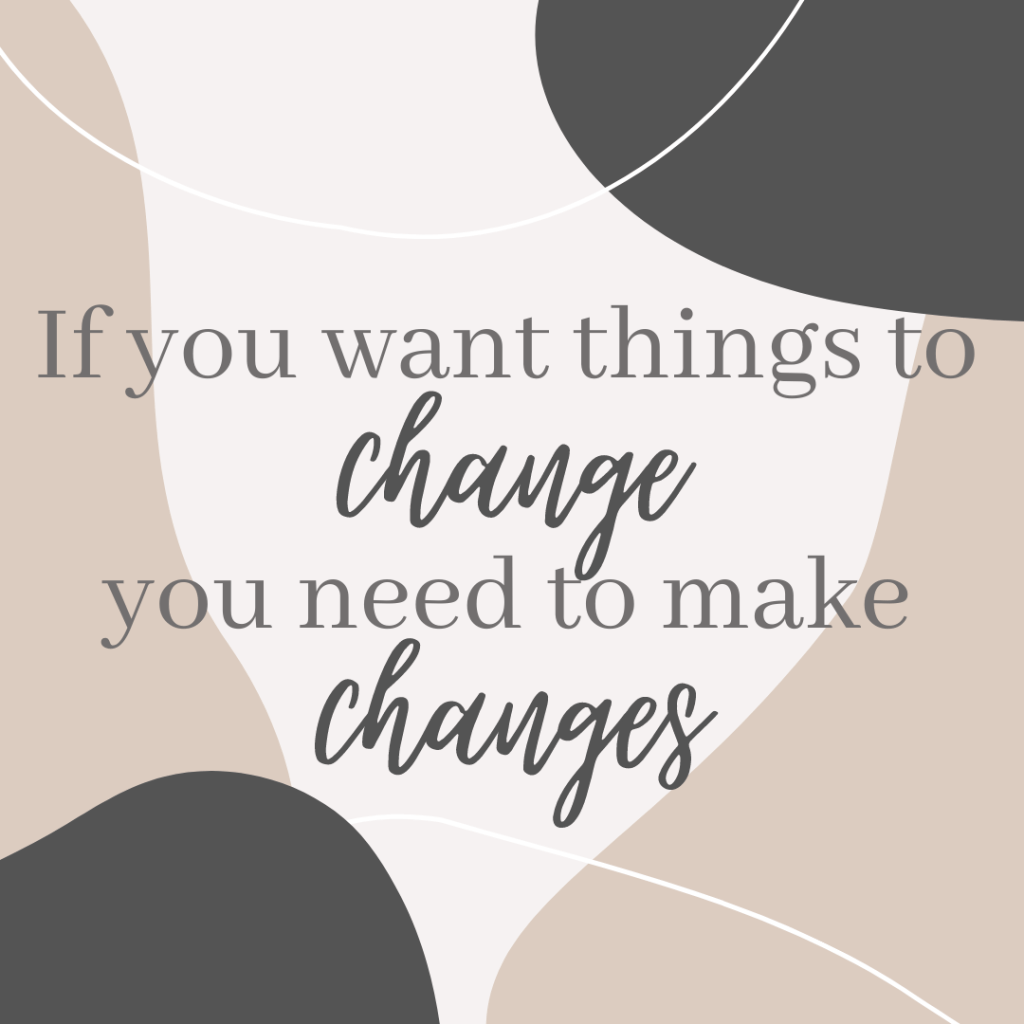Making changes is hard. Most of the time, you’ve been doing the same thing for so long that it’s daunting imagining doing anything else. Or, you’ve been trying a bunch of different things back-to-back or all at once and you’re not sure what isn’t working.
A lot of the time I’ll hear people say something like, “I don’t know what else to do, I’m trying!” And I’m here to say- but are you? Unfortunately for many of us, it’s the small adjustments to our diets and daily lives that will bring on the change. It’s commitment to tiny things that are annoying or inconvenient.
I’ve rounded up a list of 5 things that may be standing in the way of you reaching your goals. It may take some deep self-awareness to be able to correct these, but let’s first tackle identifying them.

1. You don’t know your calorie needs nor calorie intake.
This one is so basic, but it’s where we all have to start. First we need to accurately calculate your energy expenditure- this means how much energy your body uses to stay alive, do a workout, digest food, do your job, etc. Second you need to know how many calories you are consuming. This can only come from strict food journaling. Is that annoying? Yup. Who wants to write down and weigh/measure every single thing they eat throughout the day? No one. But until you know this information, there is no way you can accurately assess where you stand. So many people estimate these numbers and I’m here to tell you people are often way more off than they realize. I typically will require 3-7 days of a food journal, depending on the case.
2. Your macronutrient balance is off.
This one has to do with the amounts of carbohydrates, protein, and fat you are eating throughout the day. There are acceptable macronutrient distribution ranges for each macronutrient, and most of us fall within them without trying. However, this doesn’t mean there aren’t any tweaks to be made. People have had success reaching their goals by making small adjustments to their macronutrient balance to find what works best for them.
3. You’re over-estimating or over-crediting activity.
Most of us these days wear some sort of device – Apple watch, Fitbit, etc. – that tells us how many calories we are burning each day, how many steps we are taking and often remind us to get moving. If you don’t wear one or if you don’t really know how to interpret the information, you may be thinking you’re burning more calories than you actually are. Most of the time, the human body is very efficient and can adjust how much energy it expends based on trends of food intake and exercise. Also, putting a good hour workout doesn’t necessarily make up for sitting the rest of the day, and we tend to overeat on days we thought we did a tough workout. Especially now with many of us stuck at home, it’s harder to get in regular movement.
4. You’re stressed or you’re not sleeping enough.
If it were only easy enough for me to say “relax and get some sleep” then this problem would be solved! I think I can speak for the human race when we say we’d all like less stress and more sleep. When you’re extra stressed or consistently sleep-deprived, extra cortisol is there to keep you awake and hungry, and also can mess with your metabolism. Without realizing it, this can lead to weight gain and excessive food intake. I have heard success stories from people who reached their goals only by adjusting their sleep. Sometimes it only takes minor schedule adjustments or swaps to improve in this area.
5. You’re focusing on the wrong things.
Say you want to lose weight. Do you always measure your success by the number on the scale? This may not necessarily be the area you want to focus on. I’m not saying that body weight isn’t important, because it is and sometimes the number on the scale is crucial in determining success, but not always. Especially with an exercise routine, particularly a new one, water retention that happens naturally as we work our muscles tends to make us “gain weight” or maintain when we are trying to lose even though we are IMPROVING our body composition. It’s not as easy to be aware of your body composition (you can’t calculate it) but attempting to get access to this measurement is important if you really want to understand what is making up your total body weight. If two people next to each other both weigh 160 pounds, but person A looks muscular and lean and person B looks overweight, there is something to learn.
I hope what you took from this list was that not all changes are going to be huge steps, and it takes an honest self-evaluation to be able to identify what areas you need to improve upon in order to reach your goals. In my practice, I can work with you to take a candid look at your lifestyle and help you identify what steps to take and make sure you’re eating what’s right for you!
